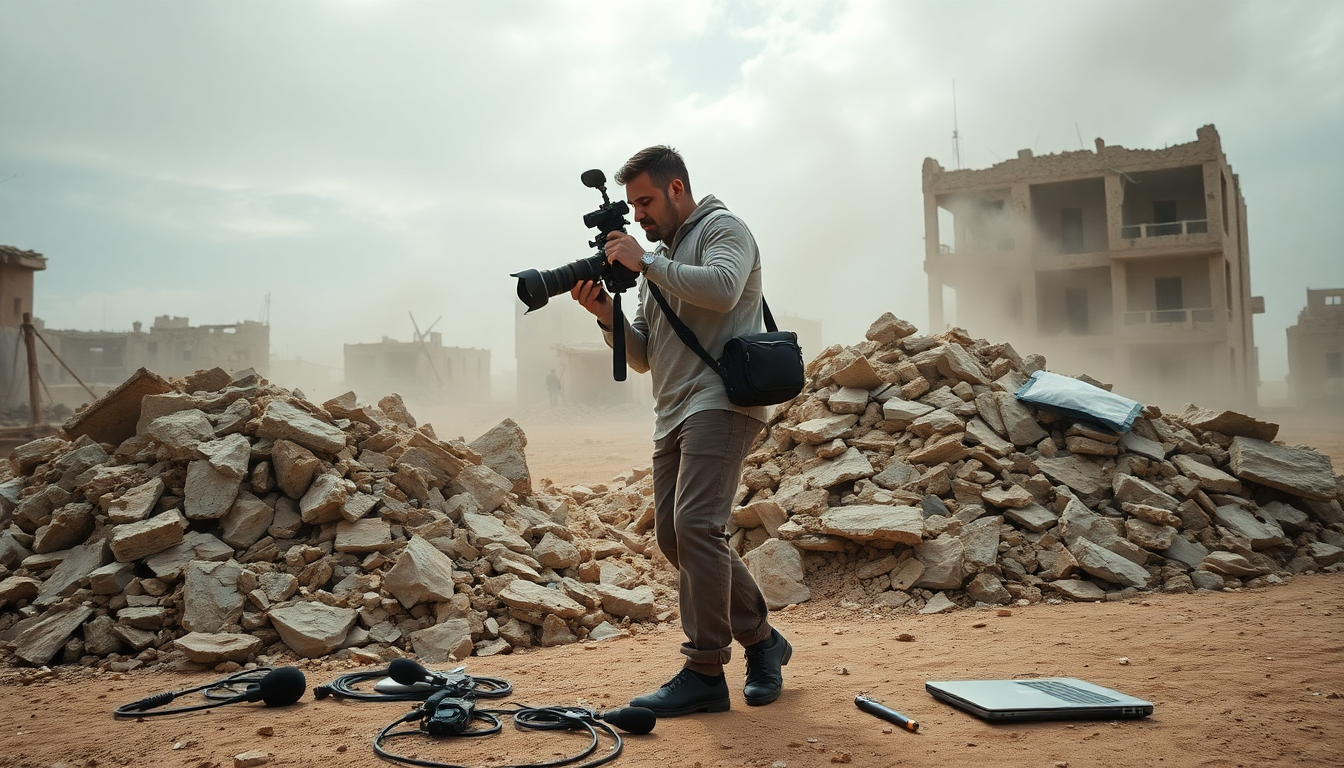Table of Contents
The ongoing conflict in Gaza has not only shattered the lives of countless civilians but has also placed an extraordinary burden on those brave enough to document this crisis. Freelance journalists in the region are facing an increasingly perilous situation, and major news agencies are sounding the alarm. Their urgent calls for evacuation highlight the pressing humanitarian issues that threaten these reporters’ very lives.
Urgent Calls for Evacuation
Recently, Agence France-Presse (AFP), one of the world’s leading news agencies, appealed to the Israeli government to expedite the evacuation of its freelance journalists from Gaza. The agency described the situation as ‘appalling’ and ‘untenable,’ illustrating just how dire things have become. This warning follows a chilling report from a journalist association indicating that media professionals in Gaza are on the brink of starvation.
Conditions for these journalists have worsened dramatically over the past few months. In its statement, AFP acknowledged the exceptional courage and dedication these reporters exhibit, but it also recognized that the circumstances have become unbearable. The association expressed grave concerns, fearing they might soon hear tragic news about colleagues succumbing to hunger—a reality they find simply unacceptable.
Moreover, the suffering extends beyond journalists. The broader population in Gaza is enduring tremendous hardships due to the ongoing conflict, with humanitarian efforts severely hindered. It’s crucial for the Israeli authorities to acknowledge the urgent need for evacuation, as the lives of these journalists hang in the balance.
The Role of Palestinian Freelancers
With a ban on foreign journalists entering Gaza, Palestinian freelancers have become the primary lens through which the world witnesses this unfolding crisis. Their reporting is vital for understanding the reality on the ground. However, the dangers they face are further exacerbated by dire living conditions. Take, for instance, a 30-year-old photographer named Bashar, who recently shared on social media that he is grappling with severe malnutrition. His story is a stark reminder of the personal toll this crisis takes on those who strive to inform the world.
This troubling situation isn’t limited to journalists. Aid organizations like Oxfam are raising alarms about their staff in Gaza, who are also facing starvation. Many workers are heading to their jobs without basic necessities like food and water, risking their health to fulfill their commitments. Can we really ignore the suffering that so many are enduring just to help others?
The united voices of these organizations emphasize the urgent need for attention to this humanitarian crisis, reminding us that the international community cannot afford to turn a blind eye to the suffering in Gaza, particularly for those journalists documenting these critical events.
Humanitarian Implications and Future Concerns
The humanitarian implications in Gaza are staggering. Health officials have confirmed multiple deaths due to malnutrition. As the conflict rages on, it’s essential to understand the interconnectedness of the humanitarian crisis and the safety of journalists. The barriers that prevent aid from reaching those in need must be addressed if there’s any hope of alleviating the suffering in the region.
Recent developments, including the Israeli blockade on humanitarian aid and the resulting fatalities, raise urgent questions about accountability and the role of international aid organizations. The situation remains fluid, and the necessity for a coordinated response to protect both civilians and journalists cannot be overstated.
In conclusion, as the conflict continues to unfold, the plight of freelance journalists in Gaza serves as a poignant example of the larger humanitarian crisis that demands immediate action. The international community must prioritize their safety and well-being, recognizing the crucial role they play in documenting the realities of war. Isn’t it time we stand up for those who stand on the front lines of truth?


